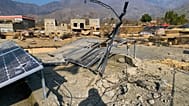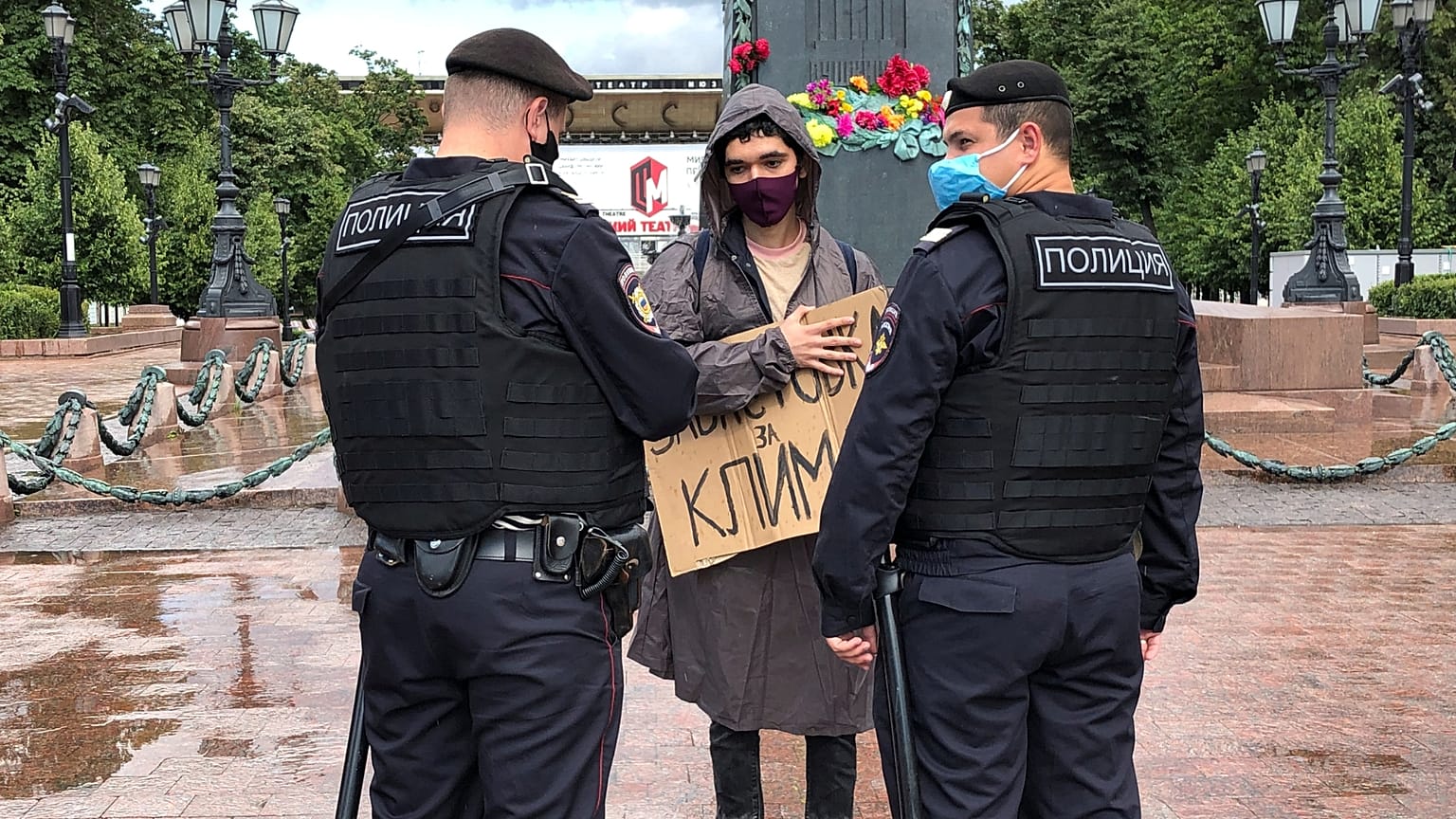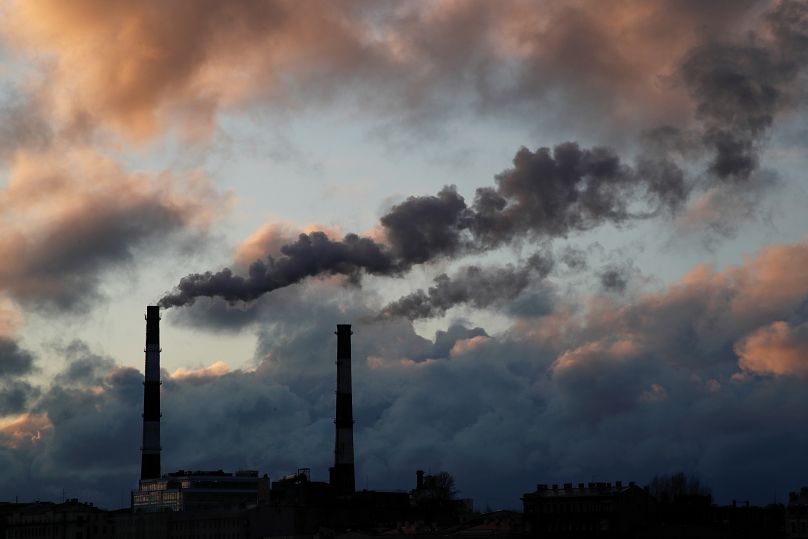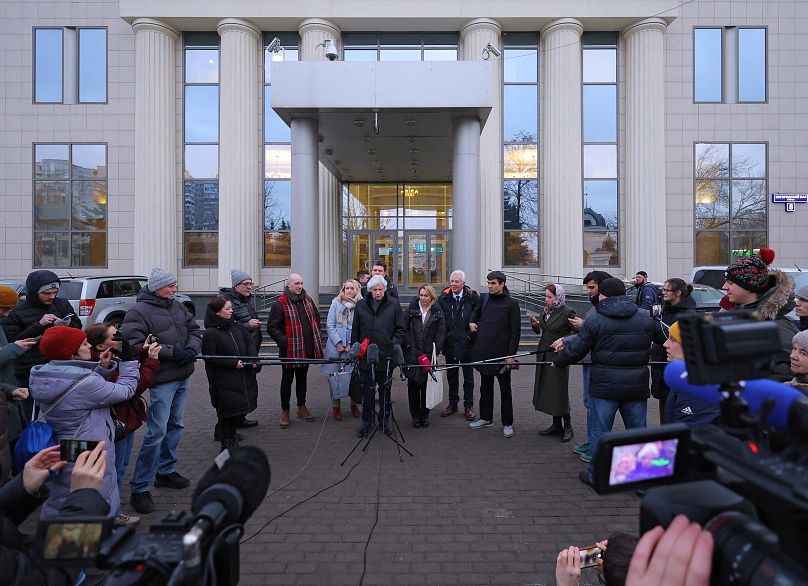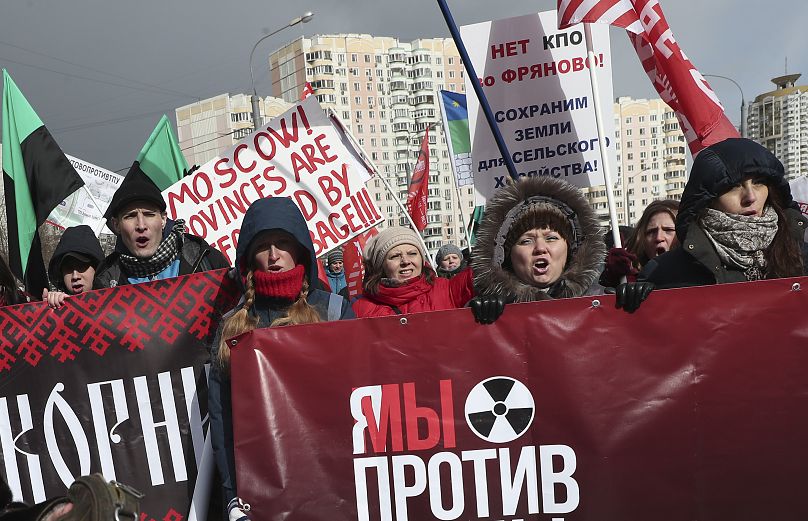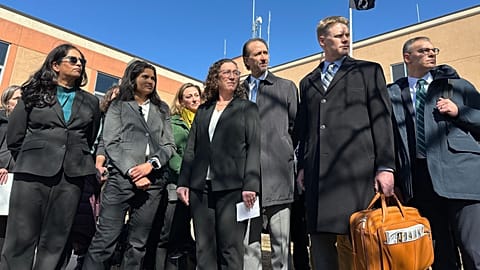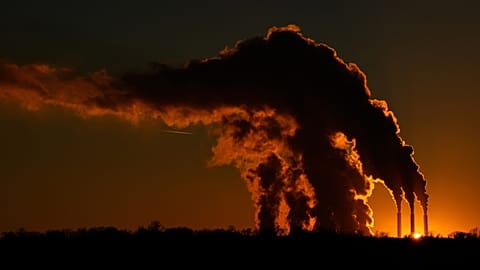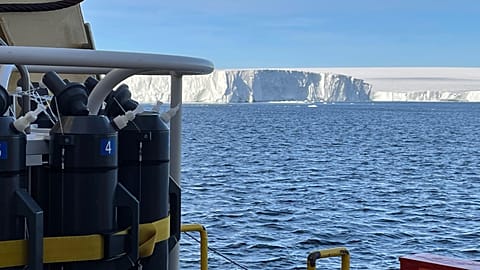War in Ukraine has led to ever-tightening laws on dissent in Russia. Despite this, activists have launched the country's first-ever climate case.
Aleksandra Koroleva is the head of one of Russia’s oldest environmental groups, Ecodefense!
 ADVERTISEMENT
ADVERTISEMENT
 ADVERTISEMENT
ADVERTISEMENT
Created in 1989, the group has had “more than enough time to anger the Russian state,” she says.
In 2003, the organisation pushed multinational energy corporation Lukoil to conduct an international examination of an oil project in the Baltic Sea and invest in satellite technology to track spills. In 2009, they worked with partners in Germany to prevent nuclear waste from being imported into Russia.
Then in the summer of 2014, Ecodefense was put on Russia’s list of ‘foreign agents’.
Adopted in 2012, the ‘foreign agent’ law first targeted any organisation that received support from foreign states or was under foreign influence and engaged in political activities in Russia. It has since been quietly expanded to all parts of society, including activists and the media.
‘Foreign agents’ have to report their income and spending, undergo financial audits and label publications with lengthy disclaimers.
The law escalated to a whole new level after the war in Ukraine began. Russia started using it to suppress any dissent or criticism of the regime, shutting down human rights and media groups and activism. ‘Foreign agents’ were barred from key parts of public life.
What it's like to be labelled as a ‘foreign agent’
When it was first introduced, Aleksandra and those from other civil organisations branded as ‘foreign agents’ joked that the label was an “elite club” - a quality mark for their work.
“Then very soon it became clear that every person with a civil position can become a foreign agent,” she says.
They made the decision to act as if there wasn’t a law at all, refusing to comply with its requirements.
“We did not comply with any of the absurd requirements of the law: we did not label the site and publications with the insulting mark ‘foreign agent’, did not coordinate events with the Ministry of Justice, did not send additional reports to the inspection bodies,” she explains.
For five years it worked, Aleksandra says. They successfully protected the climate and the rights of citizens. But “absurd and huge” fines started to rack up. Before long, they totalled 1 million rubles (€13,235).
In 2018, the organisation's accounts were frozen and in 2019, five criminal cases were brought against Aleksandra - one for each of the overdue fines. She was facing the possibility of up to two years in prison.
“Not wanting to get to know the Russian prison system closely, on 5 June 2019 instead of going for interrogation, I took a bus from Kaliningrad to Klaipeda, Lithuania,” she explains.
“And on 8 June, I flew to Germany where six months later I received the status of political refugee.”
Ecodefense! is one of the plaintiffs in Russia’s first-ever climate case.
Filed in September last year by a coalition of human rights organisations and activists, the lawsuit challenges the country’s climate strategy claiming it is “critically insufficient”. If every country took Russia’s strategic approach, the world would be on track for 4°C of global warming, according to one report.
The case also says that Russia’s insufficient climate action is “violating the Russian constitution and the European convention on human rights”.
Considerable risks from crackdowns on civil society
The climate case was submitted on 11 September. Five days later, Russia withdrew from the European Convention on Human Rights. This case may turn out to be the last the European Court of Human Rights (ECHR) hears from the country.
18 individuals and two organisations filed the lawsuit, despite considerable risks from crackdowns on state opposition.
Russian politicians accused those behind the lawsuit of using the “myth” of climate change to launch a “large-scale legal sabotage”. Chairman of the Just Russia party Sergei Mironov called it a “direct preparation for a new propaganda campaign against our countries and outright blackmail of the Russian leadership”.
The pressure activists face, however, goes further than just the consequences of challenging a lack of ambitious climate action.
Aleksandra Koroleva from Ecodefense! says there are now 70 organisations on the list of foreign agents, 19 people on the register of individuals and 172 people and organisations recognised as media foreign agents.
Authorities insist that the laws are not discriminatory. But by 2021, 22 of the 32 environmental organisations that were initially added to the list had closed. Others have struggled to survive by adapting to tightening restrictions on their operations.
Have ‘foreign agent’ laws tightened since the war in Ukraine began?
The persecution of activists and critics across civil society only increased when the ‘foreign agent’ law was tightened last year.
Definitions were changed to the point where almost any person or entity - regardless of nationality or location - can be designated a ‘foreign agent’. ‘Political’ activity now includes “opinions about public authorities’ decisions or policies”.
It means that anyone who engages in activism or speaks out against Russian policies could be classified as a ‘foreign agent’. Authorities just need to claim they are under “foreign influence”.
The new law also excludes ‘foreign agents’ from participating in vital parts of public life. It includes bans on actions like joining the civil service, acting as an expert in environmental impact assessments, teaching children, donating to political campaigns or even helping to organise public assemblies.
A major sign of this widespread crackdown on civil society groups came just last week.
On 25 January, The Moscow Helsinki Group, Russia’s oldest and last independent human rights organisation, was ordered to shut down. The formal reason given by the judge in the Moscow City Court was that members had participated in events “outside of their region” without proper registration.
Valery Borshov, co-chair of the group, told the court during the hearing that dissolving it was “a serious blow to the human rights movement not only in Russia but also the world”.
The organisation was one of the first to condemn the controversial ‘foreign agent’ laws. It is also one of the plaintiffs in the climate case.
Russian activists are calling for support
There have been repressive measures outside of these laws too.
Those who attend climate protests face huge fines, detainment and damage to their property, according to reports. Organisations tracking the persecution say community leaders have been beaten by unknown individuals, arrested and raided by the police.
The Russian Social and Ecological Union documents the persecution faced by environmental activists in the country in monthly reports. Vitaly Servetnik is the organisation’s co-chair.
The reports, he says, were spurred on by both the gradual degradation of environmental regulation and then the introduction of the ‘foreign agent’ law. They wanted to monitor this progression, first to show the “broader picture” to the community.
“So that my colleagues can see what’s happening to us … but also to show the documentation to the authorities and the broader world.”
The goal is not just to spread information about the pressure activists face but to look at the situation more deeply and propose ways that people can support activism.
“We are not only publishing information about pressure but also saying, okay you can send this letter to the authorities or you can sign this petition, you can donate money to pay this fine,” Vitaly says.
Do people still protest in Russia?
Activists still continue to defend the environment in Russia. These projects are vital - particularly outside of cities, closer to nature - and those involved have been working on them for years.
“From the European perspective, it’s really risky,” Vitaly explains. “But if you look at countries in the Global South, people are not jailed or fined, but are killed for what they are doing.”
Vitaly also points out that for someone who can’t breathe because of pollution or where water isn’t safe to drink, the threat of a fine or imprisonment is nothing compared to the existential environmental threat.
The pressure they face is part of a longer story of weakening environmental protections and those who work against them. There are good years and bad years.
And the persecution of environmental and civil organisations in Russia has, of course, increased since the full-scale invasion of Ukraine last February.
People protest less, Vitaly explains, and there are more criminal prosecutions of activists. Instead of the one or two criminal cases they saw before, it is now five or more a month. There were more convictions in 2022 than in previous years.
“Still we have seen people protesting in this last year, even in this situation,” he says.
Could things have been different in Russia?
Ecodefense! was one of 73 Russian NGOs that filed a complaint with the ECHR in 2013, before there was even a list of ‘foreign agents’.
Last year, the ECHR ruled that the law was unnecessary in a democratic society. It said that the classification of organisations as engaging in “political activity” and receiving “foreign funding” had been based on an overly broad and unforeseeable interpretation of those terms.
But for those that had launched the case, the judgment may have come too late. By the time the ECHR made its decision, half of the organisations that filed the complaint had closed down.
“The defeat of the strongest civil organisations helped the dictatorship to stay in power and, in the end, start a full-scale war in Ukraine, blackmailing the whole world with a nuclear threat,” says Koroleva.
“The law on ‘foreign agents’ destroyed the developed framework of public organisations that was supposed to keep the emerging democracy from sliding into the abyss.”
This article is part of The Inside Story, a Euronews Green series about the issues that could be make or break for the climate. You might be interested in our other stories about K-Pop fans becoming climate activists and the French centre focused on predicting and preventing tsunamis.




